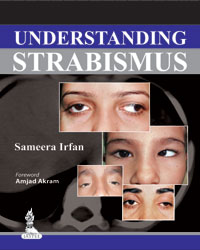|
|
|
| |
 |
|
|

|
 推薦指數:
推薦指數:





|
|
- 簡介
|
ISBN 9789350909904
Edition 1/e
Publish Year 2014
Pages 136
Size 6.75" X 9.5"
Cover Type Paper Back
With CD/DVD No
Weight (Grams) 335
|
|
- 內容介紹
|
The subject of strabismus is like a vast ocean; standing by its shores, one cannot assess its full expanse but only by taking a deep plunge into it does one realize its true depth and dimension. Eyes are the organs that receive and reflect the intelligence of thought and the warmth of sensibility. According to JC Lavater, Physiognomist (London, 1826), “The images of our secret agitations are particularly painted in the eyes. The eye at once receives and reflects the intelligence of thought, and the warmth of sensibility. It is the sense of the mind, the tongue of the understanding.” Hence, it is our duty and responsibility as strabismologists to ensure equal vision in both eyes, which are, therefore, locked into equal and simultaneous movement in all directions.
Strabismus (squint) is a sign; it is Nature’s way of telling us that something is wrong with the eye itself, either structurally or functionally, or with the visual pathways and higher centers controlling the ocular motility. It has a multifactorial etiology. In order to plan the correct management, it is important to find the causative factors and an attempt should be made to rectify them first before embarking on strabismus surgery. A clear conceptual knowledge of refractive errors is mandatory to understand it completely. About 80-85% cases of strabismus are due to mismanaged refractive errors. A sound understanding of refractive errors is the backbone of strabismus management.
It is also very important to realize that except the truly Essential Infantile Esotropia, all other kinds of strabismus have defective vision in either one or both eyes as a contributory factor. Normally, equal visual acuity in both eyes causes a state of sensory fusion that locks the two eyes to move together. If this locking mechanism does not occur due to poor vision in one eye, that eye either turns inwards (esotropia) in an infant or a toddler or it turns outwards (exotropia) if visual loss occurs after the age when accommodation is less active.
|
|
|

